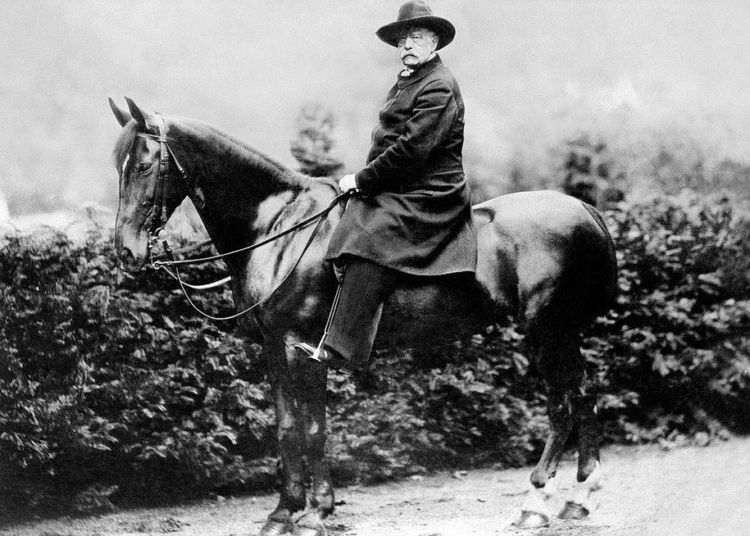This content introduces the leadership legacy of Otto von Bismarck, focusing on his influence on Prussian military tactics and accomplishments. It highlights Bismarck’s early life, rise to power, and his implementation of innovative military strategies such as “total war.” The article explores his use of economic, diplomatic, and psychological warfare as well as his role in the unification of Germany. Bismarck’s leadership style and achievements make him one of the most significant figures in German and European history, both in the military sphere and in domestic politics. His legacy continues to inspire leaders worldwide.
The Mastermind of Prussian Military: The Leadership Legacy of Otto von Bismarck
Introduction
Otto von Bismarck, widely regarded as one of the most influential figures in German history, was the mastermind behind the military successes of Prussia, which ultimately led to the unification of Germany in 1871. Bismarck’s leadership and strategic vision played a crucial role in shaping the modern German state. This article delves into the leadership legacy of Otto von Bismarck and the impact he had on Prussian military tactics and accomplishments.
Early Life and Education
Born on April 1, 1815, in Schönhausen, Germany, Otto von Bismarck belonged to the aristocratic landowning class. He received a well-rounded education and demonstrated a keen interest in military history and political science. Bismarck’s exposure to military strategy from an early age laid the foundation for his later military accomplishments as a leader.
Rise to Power
Bismarck began his political career as a diplomat, serving as the Prussian representative to the German Confederation. However, it was during his time as prime minister of Prussia from 1862 until 1890 that he truly unleashed his strategic genius. Bismarck was the driving force behind a series of successful military campaigns, which expanded Prussia’s influence and paved the way for German unification.
Military Tactics and Innovations
Bismarck revolutionized Prussian military tactics, implementing innovative strategies that secured victories on the battlefield. One of his most significant contributions was the implementation of the concept of “total war.” Bismarck understood that winning a war required the utilization of all available resources, not just military strength. He emphasized the importance of economic, diplomatic, and psychological warfare to gain an edge over the enemy.
Economic Warfare
Bismarck recognized the economic power of a nation in wartime. He strategically used economic warfare to cripple the enemy’s resources, employing tactics such as blockades, trade restrictions, and disrupting supply chains. By targeting the economic backbone of his opponents, Bismarck weakened their ability to sustain a long-term war effort.
Diplomatic Warfare
Bismarck was a master of diplomacy and understood the significance of alliances, both in peacetime and during conflicts. He skillfully navigated complex political landscapes, forming alliances with other European powers to ensure the success of Prussian military campaigns. Bismarck’s ability to build and dismantle strategic relationships played a crucial role in Prussia’s military triumphs.
Psychological Warfare
Bismarck recognized that winning battles was not only about physical strength but also about an enemy’s morale and will to fight. He employed psychological tactics to demoralize and intimidate his opponents, often using propaganda, misinformation, and psychological manipulation. Bismarck understood the power of perception and successfully exploited it to gain an advantage on the battlefield.
Unification of Germany
Bismarck’s military triumphs were a means to a larger end – the unification of Germany. He skillfully exploited international rivalries and tensions, orchestrating events that led to conflicts with Austria and France. Through a series of decisive victories, Bismarck weakened his enemies, eventually consolidating the various German states into a single nation under Prussian dominance.
Legacy
Otto von Bismarck’s leadership legacy in the military realm cannot be overstated. His strategic brilliance, innovative tactics, and keen understanding of the political landscape laid the foundation for a powerful and unified Germany. His leadership style, characterized by boldness, pragmatism, and a holistic approach to warfare, continues to inspire military strategists and leaders to this day.
Bismarck’s legacy extends beyond the military sphere. He is also renowned for his transformative domestic policies, including social reforms and the creation of the modern welfare state. His adept political maneuvering and diplomatic finesse earned him the title of “Iron Chancellor” and secured his place in history as one of the most significant figures in German and European politics.
Conclusion
Otto von Bismarck’s leadership legacy in the military realm remains a testament to his strategic brilliance and innovative thinking. His contributions to Prussian military tactics and the unification of Germany have forever shaped history. Bismarck’s ability to combine military strength with economic, diplomatic, and psychological warfare paved the way for Prussia’s military triumphs and the birth of a united German nation. His legacy as a bright military mind and transformative political figure continues to inspire leaders around the world.













